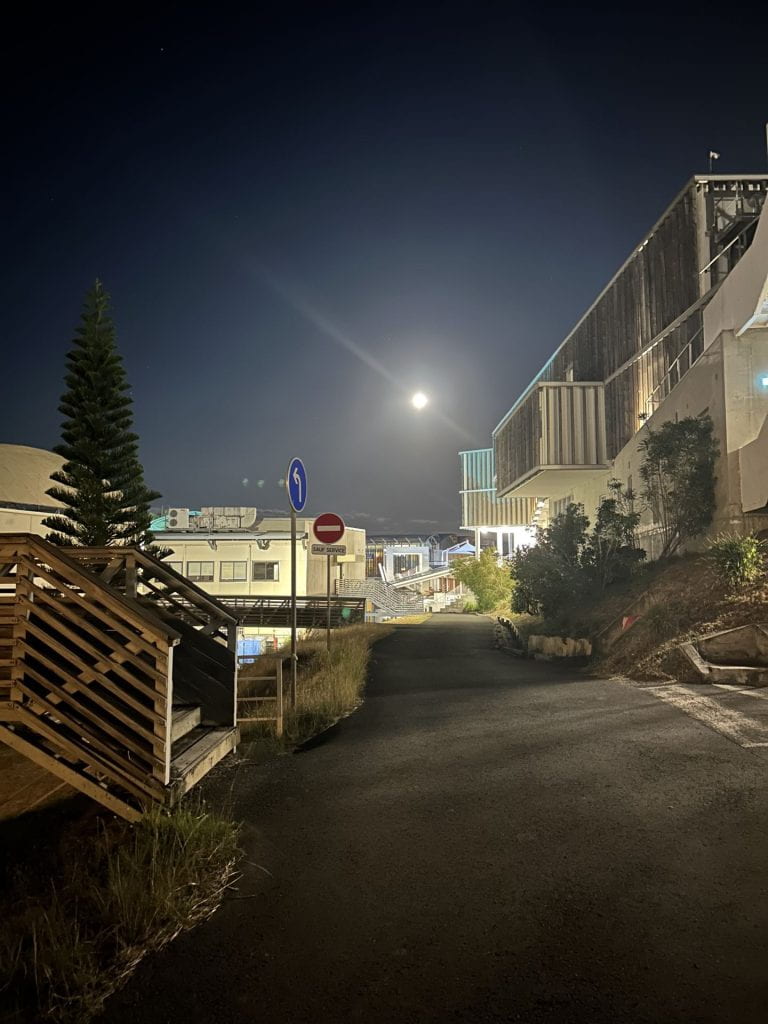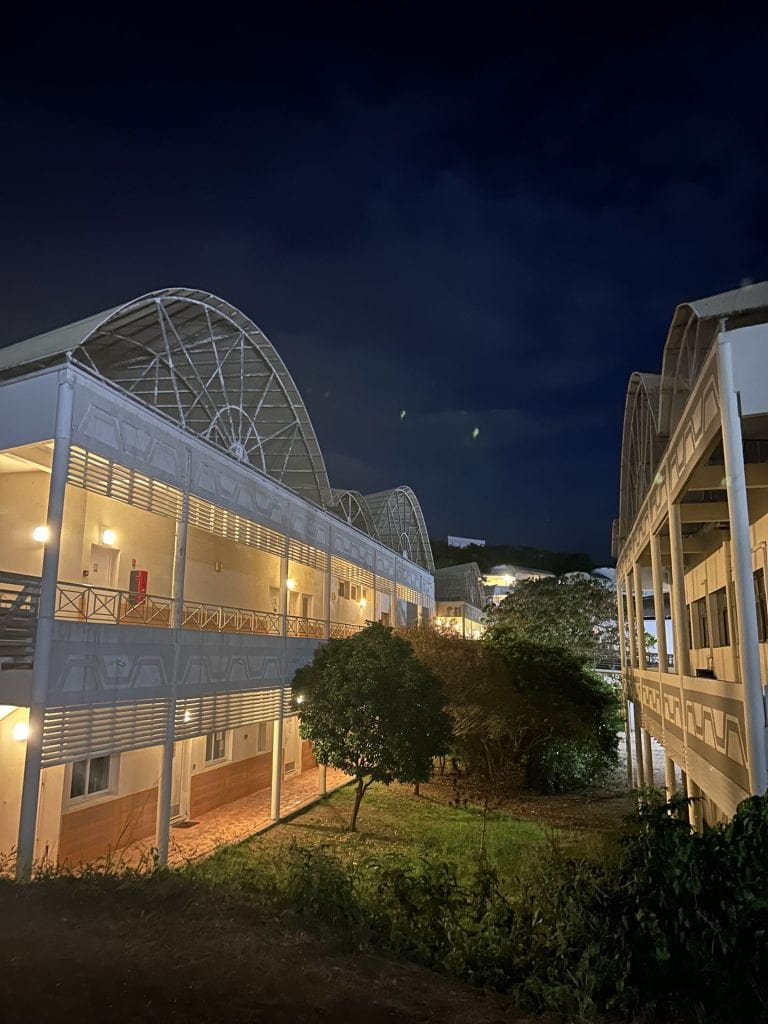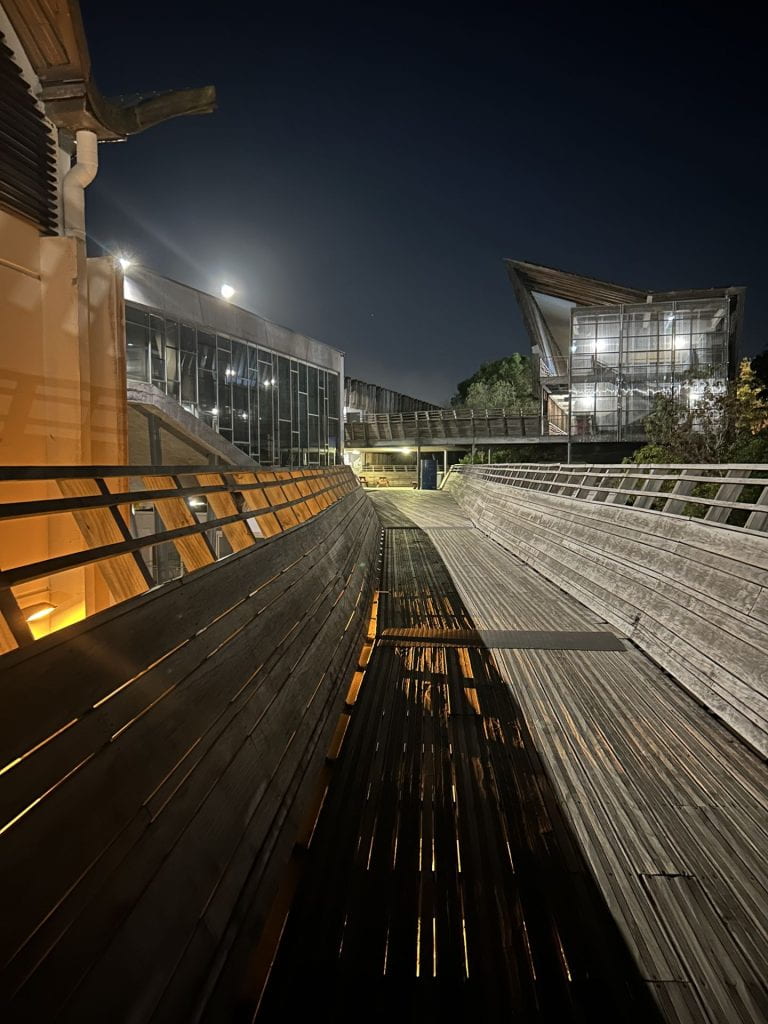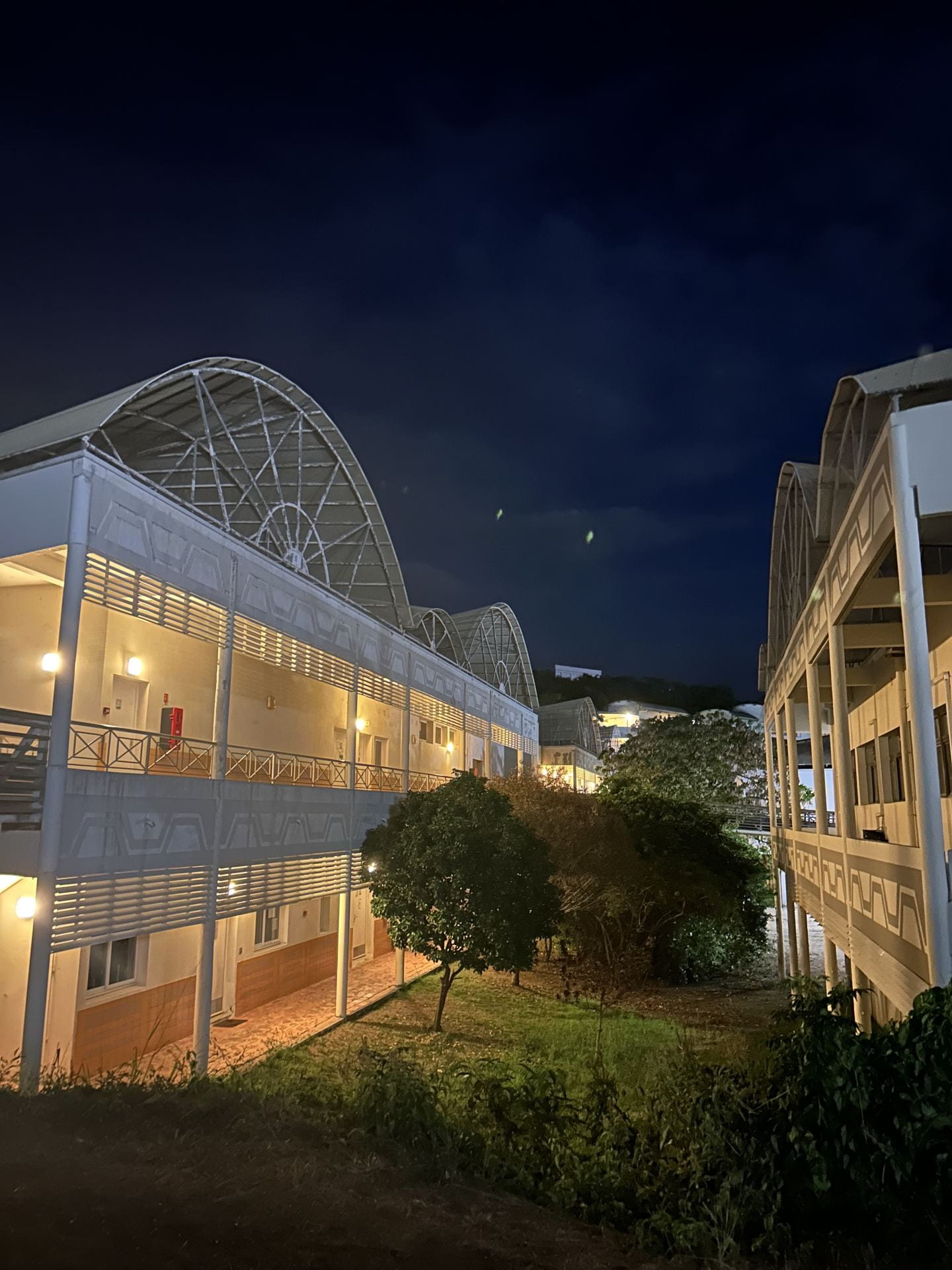


I loved this short-term exchange! The monitors made me feel at home from the start. We started with a ‘coutume’, an opening ceremony when we arrived at the residence. It was my first introduction to Kanaka culture and the amount of respect and humility shown in the culture could be found immediately in this first ceremony. The monitors and residents were super friendly, and the open layout of the accommodations made it easy for everyone to hang out together.
The kitchen was small, which made cooking a times difficult. We had problems with dishes not getting washed, but we sorted that out by assigning two people each night to handle the final dishes, scrub down, and put away utensils.
My room was spacious, with an incredible view of the sea. Dealing with the heat and mosquitoes wasn’t an issue, thanks to my fan and a mosquito net over my bed. However, I did have problems with my fridge in my room. It was broken for my entire stay so it meant I kept all my refrigerated goods in the communal fridge. This was okay for me because it meant all my things were in the kitchen and I didn’t have to carry food back and forth from my room to the kitchen.
The teachers were incredible! Every class delved into New Caledonia, and the variety of teaching methods kept classes engaging. We would watch documentaries, role-play, analyze texts or images, engage in conversations, and debates etc.
I didn’t join any clubs or sports since my program kept me busy. Still, I made it a routine to run in the early mornings to Khuendu Beach, a nearby spot. It got tempting to take a dip, but swimming was prohibited due to the sharks.
Campus life was pretty mellow, given that the program rolled out during the summer. As for food, we had three main options: grabbing a bite on campus (fairly cheap, especially if you buy a student ticket which gives discounts for the canteen) or going to My Shop (a 15-minute walk away) or catching a bus to the city (more expensive and a 15-minute bus ride)
The biggest challenge of the program was the organization of the program- the schedule often changed and the changes were informed through word of mouth or messages on the group chat which were often bombarded with messages thus making it difficult to find relevant information. However, the organizations improved within the last week.
One piece of advice I would give to students who plan to take this program is to spend time with the monitors and residents because that is where you learn the most about new Caledonia life and where you can improve your oral French the most.
What were the highlights of your experience during your time in the French Summer School?
I found the teachers at the university incredible!!! Classes were engaging and having multiple teachers contributed to this. I was also very happy with the structure of the classes and activities. We were often taught vocabulary on subjects that we then had to use in the next activity. For example, in our morning class, we would be taught vocabulary on New Caledonia endemic plants and then in the following lecture had a more detailed lecture on this topic. It made the day flow well and gave us confidence when listening to the afternoon lectures because we have a strong foundation.
Also after every topic I particularly enjoyed it when the teacher asked if there were similarities within our own country. I enjoyed this discussion the most (discussion of cultural differences and similarities).
Were there any activities that were unique to your host country or university that you would recommend?
Staying at the Outea Tribe for a weekend with the university was something I cherish greatly. Exploring and learning from the locals about their day-to-day lives was a truly fascinating experience.
What are your top 3 tips for future students attending this programme?
My top 3 tips for future students would be:
1) Pack an adapter!
2) Buy a Taneo bus pass early- buses are slightly cheaper and it’s easier than having to continuously cash out money
3) Hang out with the monitors and residents because that is where the fun is and where your French-speaking can improve the most!
How much did you budget? Was this enough? Were there any lessons learned that would help future students budget for their own short-term programme?
I budgeted 800 for the exchange- not including the plane tickets and accommodation. This was sufficient until last week where I bought Christmas gifts. In Auckland I spent about $120 on groceries a week- in New Caledonia it was around $95. For groceries, I went to the morning markets. The other option with food is buying on campus- there are two different canteens and there is a booth near one of the canteens where you can purchase student food tickets which gives you a student discount on the canteens. Would highly recommend it!
Also of course purchasing cheap food and in-season fruits and vegetables is the way to go!
What were the most significant takeaways from your experience with this programme?
One takeaway would be the significant levels of respect and humility evident in the locals’ lives. The regard for elders far surpasses what is usually seen in the Western world. In Melanesian culture, having grey hair and wrinkles are seen as signs of wisdom and knowledge, and being old allows one to gain some form of authority. One young Kanak had explained to me that it felt to her almost innate to lower her gaze when speaking with an elder. She also shared her happiness to one day become old and wise.
Another takeaway was the cultures differentiating a few things into gender. For example, taro is female and yam is male. Both taro and yam also hold so much importance in Melanesian culture- to the creation story, cuisine, customs, and rituals.
